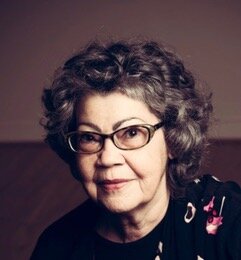The PEN Pinter Prize is awarded annually to a writer who, in the words of Nobel Literature Prize winner Harold Pinter, casts an ‘unflinching, unswerving’ gaze upon the world and shows a ‘fierce intellectual determination … to define the real truth of our lives and our societies’. This year, that writer is Linton Kwesi Johnson. Over thirty years earlier, Arena’s Caribbean Journey featuring the reggae poet’s journey back to Jamaica showed his commitment to telling the real story of Britain’s colonial and postcolonial history. Echoing the experiences of thousands of Caribbean people who came to the UK, the film strikes a chord in today’s turbulent times. As PEN Pinter Prize judge Max Porter says of LKJ, ‘He has been fearless, and relentless, but tragically his message is now more important than ever, given the Windrush scandal and the ongoing systemic demonisation of the immigrant population and racial minorities in the UK.’
For Black History Month, Writing on the Wall presented this film with iconic reggae poet Linton Kwesi Johnson from the BBC’s Arena archives. Here, you can still watch poet and old friend of LKJ SuAndi introduce a response from newer generations: poets Karen McCarthy Woolf, Ashleigh Nugent and Levi Tafari, who explore their own links to Jamaica and black Britain. Award-winning author Olive Senior talks about her life and work and acclaimed historian Colin Grant reads from his book Homecoming: Voices of the Windrush Generation. And the Bocas Lit Fest’s Prize-winning poets Danielle Boodoo-Fortuné and Vladimir Lucien take inspiration to write new poems. Together these different generations of authors show the depth and breadth of the Caribbean contribution to culture then and now.
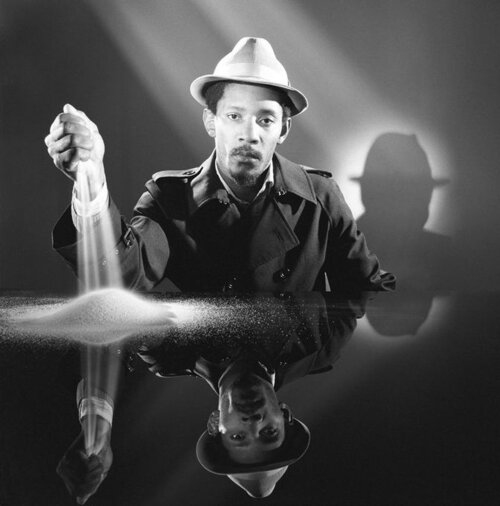
ARENA: A CARIBBEAN JOURNEY
Linton Kwesi Johnson visits his childhood home in Jamaica for Arena: Caribbean Nights
(Director: Anthony Wall, 1986)
In 1986, Arena presented Caribbean Nights, a themed Saturday evening of television followed by a series of films throughout the following week on the same subject. Arena had pioneered the format of the ‘Night’ the year before with Blues Night, presented by BB King. Its success paved the way for the same amount of airtime to be given to the Caribbean.
The object was to celebrate Caribbean art and culture, explore its origins and bring it, in all its richness and variety, to a British audience. Reggae had broken through, thanks largely but not only to the massive impact made by Bob Marley, and the Notting Hill Carnival had become an institution but, in 1986, despite the scale of the Caribbean presence in Britain, its culture was under-represented in the media, to say the least. The poignant enthusiasm of Lord Kitchener’s calypso, ‘London is the place for me’, which he sings in front of the recently arrived Windrush in the now iconic 1948 newsreel proved all too optimistic.
From the mid to late 1970s new voices were demanding to be heard, not least that of Linton Kwesi Johnson. His revolutionary reggae poetry was a fierce and unequivocal critique of the prejudice and oppression that black people had had to endure in the mother country, for which they had such hopes.
In Caribbean Journey, LKJ presents a sketch of the relations between the Caribbean and Britain from the beginning colonisation and slavery to the transmission year of 1986. He lays down the themes and issues that would underlie the following night of films and talk. His own experience made him perfectly equipped; he was born and spent his childhood in rural Jamaica.
He revisits Chapelton, his first home, and then goes to the small farm where he’d lived with his grandmother. The distance between the dusty roads, fields of sugar cane, banana trees and yams was as far as could be imagined from the south London he would move to. And yet, there in Chapelton, on the green, is the war memorial to the local servicemen who had fought alongside British troops in both World Wars. It’s identical to any memorial you might find in any English village.
At his school LKJ meets one of the teachers. They talk about the kind of history and literature he would have been taught — British history and little of his own. LKJ brings the story back to Britain and shows the increasing importance of Caribbean culture to this country. The film features a beautiful art installation chronicling black people’s journeys across generations here in the UK. The Specials’ performance rounds things off, making it clear that this Caribbean contribution has taken root, is here to stay and to grow.
Anthony Wall
29 September 2020
RESPONDING TO Caribbean Journey
Introduced by internationally recognised poet SuAndi, watch prize-winning poet Karen McCarthy Woolf, rising star Ashleigh Nugent and Levi Tafari, Liverpool’s own lauded reggae poet, respond to the Arena film.
Responding to the film
INSPIRED BY ARENA’S Caribbean Journey
New Poetry by Danielle Boodoo-Fortuné and Vladimir Lucien
Listen to and read specially commissioned poems from two well-known poets from the region, inspired by the film.
Danielle Boodoo-Fortuné
‘No Word for Light’
Commissioned Poets
Interviews and readings
Homecoming: A Reading from Colin Grant
Interviews
An interview with Olive Senior

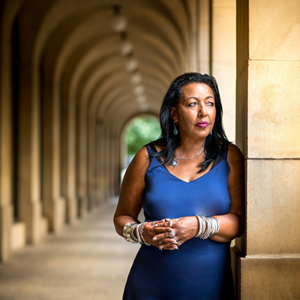
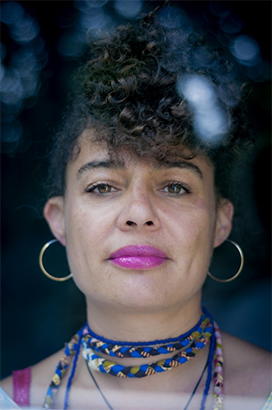
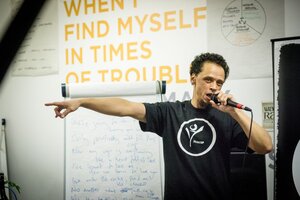
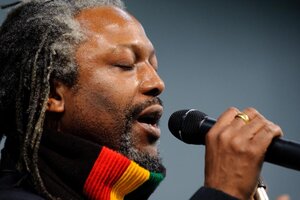
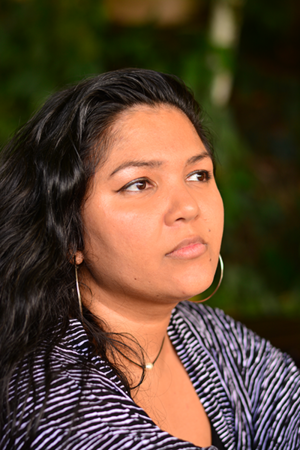
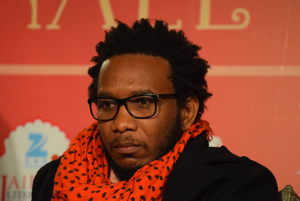
 (2).jpg)
